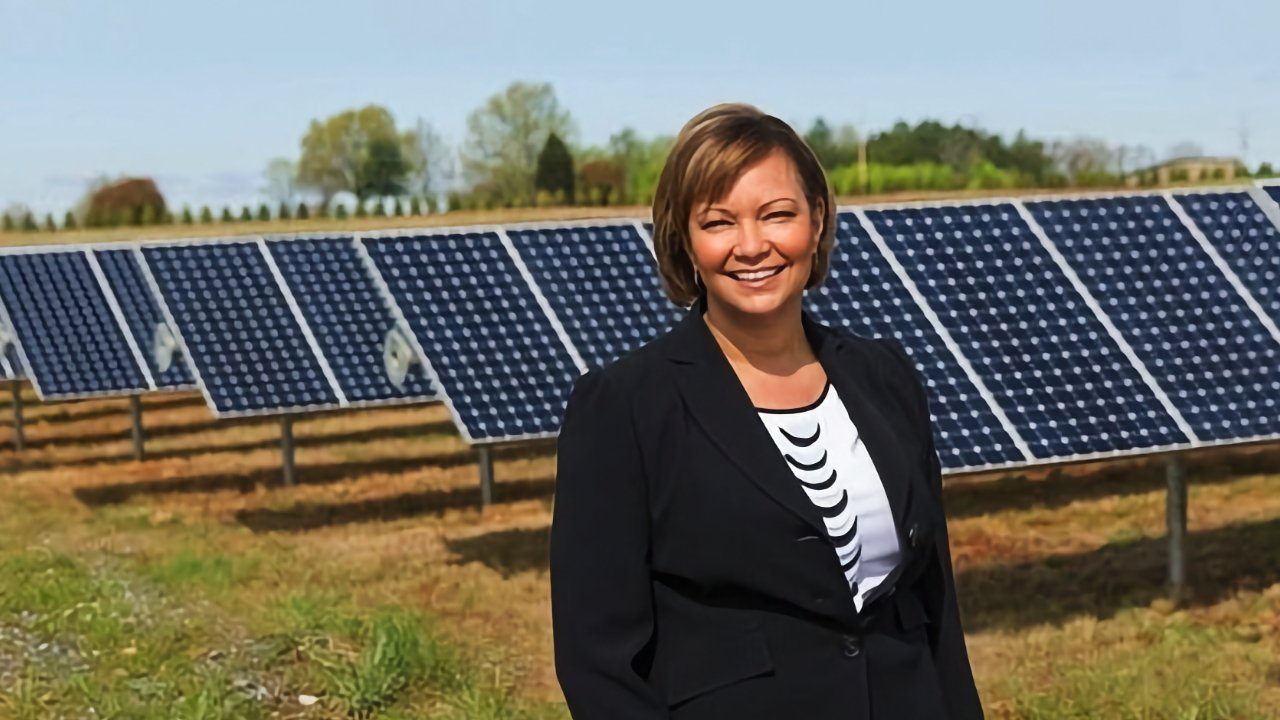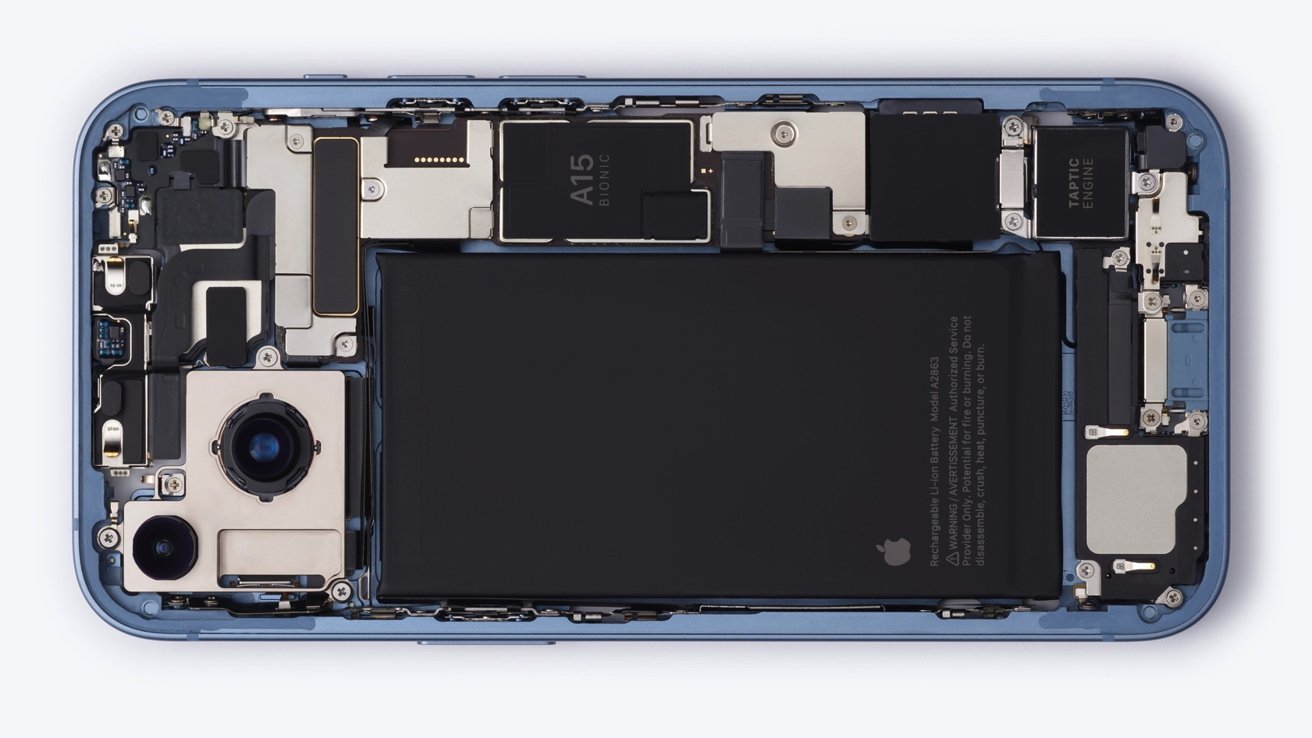Apple's Lisa Jackson recently sat down for an interview to talk about racial equity, building a stronger workforce through diversity, and the climate.
Lisa Jackson is Apple's vice president of environment, policy, and social initiatives, and therefore has a lot of ground to cover on a regular basis. To that end, though, she makes it a point to note that even solutions for climate need to "include equity," pointing to a major crossroad where all these efforts meet.
Jackson spoke with The Washington Post's Jonathan Capehart to discuss all of these major topics, including Apple's efforts with racial equity investments, and a major ruling by the Supreme Court of the United States involving affirmative action.
Racial equity
Things start off with the investments Apple has made over the years regarding racial equity, the Racial Equity and Justice initiative that kicked off a few years ago. Since then, the company has invested over $200 million to the effort, according to Apple in June.
Jackson says Apple started with a key focus: education. She says, "education is the ladder, the way to equity," and notes education is "probably most important pillar has been investing in education." She calls out the company's Developer Academy, which opened in 2021 in Detroit, Michigan, as being a major push by Apple.
Apple's CEO, Tim Cook, shares Jackson's belief regarding education, saying in 2022 that education is the "great equalizer."
As for the SCOTUS decision regarding affirmative action, Apple was one of 70 companies to file an amicus brief with the ruling body, arguing that affirmative action in university admissions should remain in place.
SCOTUS's decision moves away from race-conscious decisions for higher education in the United States. When asked if she's worried about how the decision will impact hiring decisions moving forward, she said:
"Of course, we have to worry because it is one of our imperatives to continue to focus on inclusion and diversity, and we will. Our value is not going to change. So we have to continue to find ways to ensure that we are meeting students where they are."
Cobalt and the climate
Moving to climate, Capehart asked about Apple's use of cobalt in its lithium-ion batteries in devices like the iPhone. Unsurprisingly, Jackson repeated what the company has already said publicly, that Apple will be using 100% recycled cobalt by the year 2025:
"By 2025, all of the cobalt in all of the batteries we design and spec will be recycled cobalt. Why? Because a large part of our strategy here is that it is very difficult. We have been leading for years on trying to ensure that we know where the supply of many minerals, including cobalt, come from."
She avoided answering a question regarding the lawsuit filed against several different companies, including Apple, regarding "brutal" child labor law violations in the Republic of Congo, which is associated with cobalt mining.
Climate and equity
At the crossroad mentioned above, Jackson was asked about how climate change can be associated with racial and social justice issues. Capehart wondered if the current climate makes collective action harder. To that, Jackson said:
"Look, I don't think water and wildfire know race. I really don't. I think flooding is flooding. It may well be that some communities and communities of color— or I'll say economically deprived communities under-resourced may be on the front line, but that doesn't protect you. Air blows. You know, pollution moves. Water flows downhill. So we can look right now at what's happening in the Northeast and see it's hitting all kind of communities."
She ends the interview talking about community and how this is Apple's focus regarding climate work, at least in part. That any solutions need to think about the community where those solutions are being placed. She added, "You can't go in to decide to preserve an area, take it off of any kind of development opportunity or potential, and then say to the community that surrounds it, good luck finding a job, you know."
 Evan Selleck
Evan Selleck








-m.jpg)






 Andrew Orr
Andrew Orr
 Wesley Hilliard
Wesley Hilliard

 Oliver Haslam
Oliver Haslam
 Christine McKee
Christine McKee
 Amber Neely
Amber Neely










5 Comments
Whether you agree or disagree with the policies Apple pursue ( it's mixed for me personally) you have to acknowledge what a great speaker Lisa Jackson is. Considered, articulate, knowledgeable and focussed on what her role within the company and her community. I have always felt she brings a real benefit to Apple and the improvements she has brought to the business are profound - something her boss, Tim Cook doesn't always get recognition for - . Profitability with social and environmental awareness is not only possible, it is there for all to see. Great interview and excellent performance by Lisa Jackson.
Is her responsibility for "racial equity" and "climate" only in the USA, or also in the other countries that Apple does business with? Does her responsibility include putting pressure on China, where her company does business, to stop committing genocide? In most matters I'm a big supporter of Apple, but on this point I am not. I have no idea how Lisa can go to sleep at night knowing that she's working hard to stop racial inequity in America but not lifting a finger to stop the genocide that's occurring where her company does most of its manufacturing. If Samsung or Google had an anti-genocide policy I could see myself switching to their products.
https://en.wikipedia.org/wiki/Uyghur_genocide